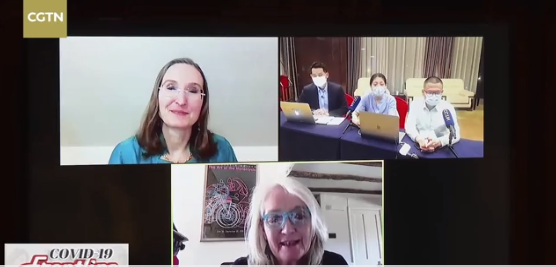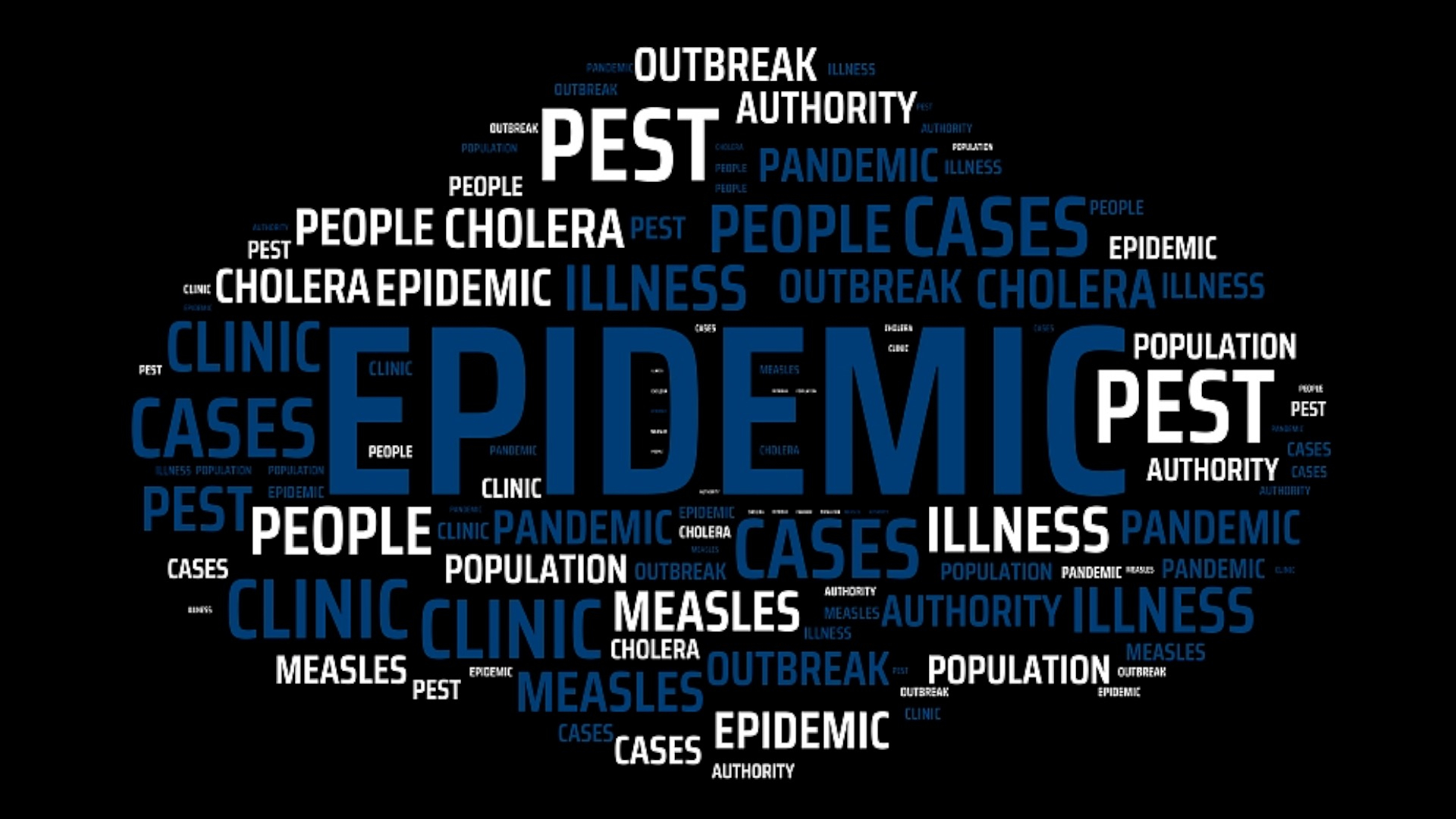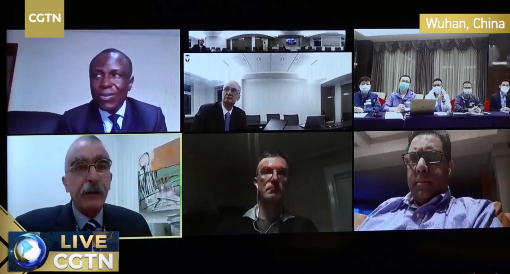Editor's Note: On March 12, 2020, the World Health Organization (WHO) declared COVID-19 a pandemic, and as of Thursday (March 26), about 200 countries and regions have confirmed over 400,000 cases, according to the WHO. On CGTN's live program "COVID-19 Frontline," we invited medical workers and experts from China's epicenter Wuhan and from all over the world to share their experiences and take questions from social media, in the hope of providing more information for those who are battling against the pandemic.
06:59

Are the highly touted Remdesivir and Chloroquine medicines effective in treating COVID-19 patients? How can the pandemic be prevented and controlled as the number of confirmed patients and deaths increases? How important is isolation for patients and families, and how strictly should it be enforced?
These are some of the questions asked by health experts and medics around the world to their Chinese counterparts with regard to battling COVID-19. CGTN invited Chinese doctors from Peking Union Medical College Hospital (PUMCH), one of the country's top hospitals, to share their firsthand experience.
The Chinese team has been treating critically ill patients in the country's hardest-hit city Wuhan since February.

Chinese doctors share COVID-19 treatment experience with health experts from the UK and the U.S. during a livestream program on CGTN./CGTN Screenshot
Chinese doctors share COVID-19 treatment experience with health experts from the UK and the U.S. during a livestream program on CGTN./CGTN Screenshot
Are Remdesivir and Chloroquine effective?
One of the most frequently discussed topics is the treatment of confirmed patients, especially whether there are effective drugs to treat the disease. From time to time, there have been media reports about the potential efficacy of certain drugs, among which Remdesivir and Chloroquine are the most highly touted.
The efficacy of both drugs has not been proven, according to Cao Wei, a physician of infectious diseases at PUMCH.
Chloroquine is a medicine for malaria that President Donald Trump has touted as a treatment for COVID-19. A study to test its efficacy published in China in early March showed that patients who were given the drug did not improve more quickly than those who didn't receive it. But a separate experiment in France claimed that the drug appeared to help clear the virus from the bodies of 26 patients.
The sample of both studies are very small, with only tens of cases, Cao said, implying more clinical trials with larger case numbers are needed before the conclusion about its efficacy can be reached.
Remdesivir is a novel antiviral drug originally developed as a treatment for Ebola. Lab tests have shown that it can inhibit the novel coronavirus in cells. According to a case report in The New England Journal of Medicine (NEJM), the first COVID-19 patient diagnosed in the U.S. was given remdesivir when his condition worsened and he improved the next day.
Then Chinese researchers conducted two clinical trials to find out its efficacy in treating COVID-19, one on mild patients and the other on patients with severe symptoms. The final results are expected in early April.
Cao said that even if the antiviral drugs have any efficacy, it might be only at the initial stage of the infection, based on her clinical experience. For critically ill patients who usually suffer from inflammatory syndromes or have had multiple organ injuries, antivirals can barely take effect, so comprehensive treatment is needed instead.
Her opinion was echoed by Fan Junping, a pulmonologist at PUMCH. He said that based on their observance of patients in Wuhan, the disease is quite difficult to treat and there is a lack of effective measures to save people's lives.
A majority of patients with mild symptoms will recover because it's a self-limiting disease, which means that given enough time the infected person will recover without medical intervention, just like colds.
Tedros Adhanom Ghebreyesus, director-general of the World Health Organization (WHO), said in a press briefing that researchers around the world have been recommended to come together to systemically evaluate experimental therapeutics. "Multiple small trials with different methodologies may not give us the clear, strong evidence we need about which treatments help to save lives," he said.
03:42

Low income countries are at a higher risk
While the WHO said that Europe has become the epicenter of COVID-19 pandemic, experts warned that low income countries, such as those in Africa are facing higher risks.
Sian Griffiths, chair of global health committee of England, said that in Europe, there has been an increasing emphasis on social distancing measures and lockdowns are beginning in most European countries.
"Travel is severely restricted, people are asked to stay at home, everyone is asked to make as much as efforts as they can. Hopefully, this will pass," she said.
She also said that European health systems are fairly robust, adding that the threat is way greater in Africa.
Dr. Kate Tulenko, a U.S. physician and an adviser to national governments on health policy and reform, shared the concerns for less developed countries with poor health systems in Africa, especially there is a false sense of security that hot climate will inhibit the coronavirus.
She said the U.S. is also taking increasing lockdowns and social distancing, building auxiliary emergency hospitals and community based health care centers for COVID-19 treatment.

Chinese doctors share COVID-19 treatment experience with health experts from Canada and South Africa during a livestream program on CGTN./CGTN Screenshot
Chinese doctors share COVID-19 treatment experience with health experts from Canada and South Africa during a livestream program on CGTN./CGTN Screenshot
Information sharing vital to contain the pandemic globally
The experts also said that they are encouraged by the degree of information during the pandemic outbreak, and China's sharing of the genetic sequence of the virus as early as January has made a huge difference.
"We need to keep sharing what works and what doesn’t. Combine the datas so as to find out the solutions," said Dr. Tulenko.
"We should think globally, not just locally. We should think what we can do together globally to mitigate the disease. That's our next big challenge," Dr. Griffiths noted.
The experts said that it's very helpful to exchange knowledge and experience about the disease with health professionals from China and other countries through programs like this.
In the later programs, more doctors and experts on the frontline in Wuhan will join in to share their experience with their peers from the world. And for those who have questions or confusions, you can also pose your questions with CGTN using #MyOpinionOnCOVID19 on Facebook.